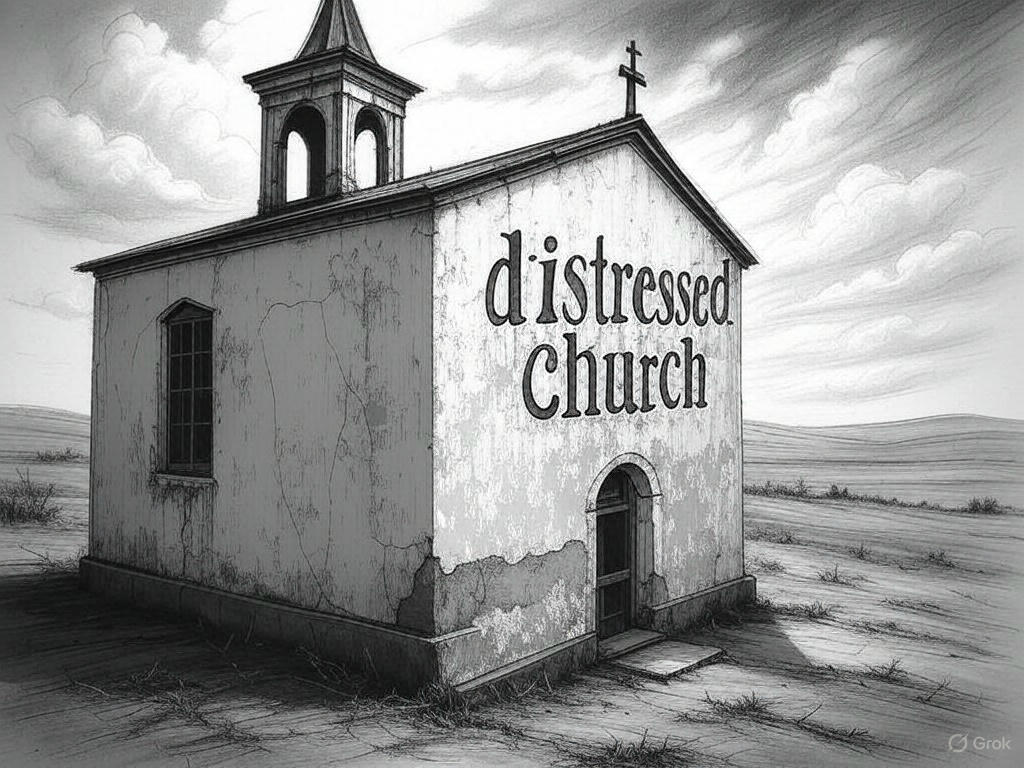Physical Address
304 North Cardinal St.
Dorchester Center, MA 02124
Physical Address
304 North Cardinal St.
Dorchester Center, MA 02124

October 17, 2018, I wrote a note in my phone, which I’m sure begins with a quote from someone smarter than me (maybe Alisdair Begg),”We should seek the Spirit of God to use the Word of God to reach the people of God for the Glory of God…. We need to repent. We have not had a single argument over theology… the church is a vessel not under command, not following Christ, adrift in a sea, and we are a shell, living off dividends earned by previous generations.” Not the kind of things you want your deacons thinking on a good day.
How did your church die? To borrow from Earnest Hemmingway, “two ways. Gradually, then suddenly.” And I’m sure my story is not unique, but hopefully it’s helpful. This website is intended to be a “field manual” to help lay leaders who find themselves in a distressed or dying church. It is focused on lay leaders in independent (i.e. Baptist and/or non-denominational) churches, primarily because that is what I’ve seen, but also because a proper denomination will have its own resources to assist, hopefully obviating the need for this kind of information.
Your hope lies in returning to Christ, repenting, praying, rediscovering and focusing on the marks of a proper church, and building from there.
In the United States today, churches are in trouble. Even though thousands of churches open every year, thousands more close. We have more money and people and resources than most of the world, but our society is less focused on God, less likely to make time for church, less likely to believe. Often, new leadership finds itself in a Twilight Zone of sorts – elected or selected to serve the church and His congregation but on an unstable footing because of church stress, flooded with problems they may not have known they were inheriting, and in recent years the work is done with the backdrop of the public’s general mistrust of institutions and church has plummeted.[1]
I was one of those people who found myself in a declining and distressed church, quite suddenly, as a lay leader. The very short version is that we had little money, no support from a denomination or presbytery, our pastor had just announced his retirement, and to quote Voddie Baucham, we were a group of “…passionate people with empty heads who love the Jesus they don’t know very well,” because our tradition left us without standards or a shared understandings of the faith. Any one of these factors might have been something that could have been fixed. Together and all at once, it was quite a mess, and help was difficult to find. My prayer is that this document finds you and provides you some help and hope if you are in a similar situation.
I was in my 40s then, and I had plenty of business and organization experience. Theologically, I had read my bible more than once cover-to-cover and taken about 3 classes at a local seminary – but that didn’t make me a theologian. I sat around the table with my fellow deacons: a couple of ladies in their 70’s and 80’s, an accountant in his 40’s, and a programmer in his 50’s. We were elected to serve at the annual business meeting of the small Southern Baptist Church we were all members of, and I believe we all thought it was going to be a relatively simple non-profit board assignment. It turned into the fight of our lives. Before we could even hold a first meeting, the bi-vocational pastor decided he was going to “retire” from the pastorate. The church attendance and giving weren’t enough to keep the lights on long term, and the pastor’s sudden retirement took a few of the ~25 regular attenders with him because “they were going wherever he did”. I will interweave my own experiences in this web page along with what I wish I would have known or been able to understand at the time. At the end, I hope to leave you with an understanding that churches aren’t meant to be independent libertarian organizations and that the promises of a church “merger” aren’t likely to succeed. TL;DR: Your hope lies in returning to Christ, repenting, praying, rediscovering and focusing on the marks of a proper church, and building from there. Or if that’s not possible, to simply shut down the organization in a way that allows for rebirth to happen, perhaps with the same people, or perhaps not.
[1] Yonat Shimron, “Study: More Churches Closing than Opening,” ReligionNewsService, May 26, 2021, https://religionnews.com/2021/05/26/study-more-churches-closing-than-opening/.
